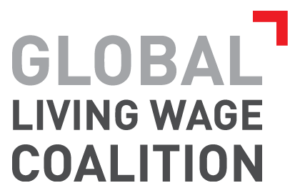The Global Living Wage Coalition has agreed to a succinct definition of living wage that incorporates the main ideas found in over 60 living wage descriptions and definitions from human rights declarations; national constitutions; NGO, multinational, and corporate codes of conduct; International Labour Organization (ILO) documents; and statements of major historical figures (Anker 2011).
A Living Wage is:
The remuneration received for a standard workweek by a worker in a particular place sufficient to afford a decent standard of living for the worker and her or his family. Elements of a decent standard of living include food, water, housing, education, health care, transportation, clothing, and other essential needs including provision for unexpected events.
How are Living Wages Estimated?
The Anker Methodology is a widely accepted and published new methodology to estimate living wages that is both internationally comparable and locally specific. It was developed by living wage experts Richard Anker (formerly ILO) and Martha Anker (formerly WHO), who spent over 15 years testing and perfecting the various aspects of the methodology. The methodology has catalyzed global action on living wage and has been used to estimate living wage in rural, urban, and peri-urban areas around the world.





